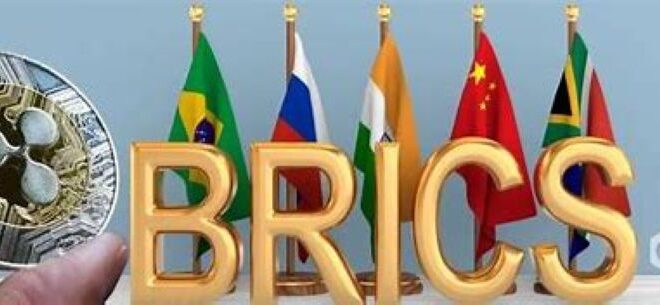The BRICS alliance—comprising Brazil, Russia, India, China, and South Africa—is ramping up discussions on alternative payment platforms to reduce reliance on Western financial systems like SWIFT and the U.S. dollar. The move comes as geopolitical tensions and sanctions drive BRICS nations to seek greater financial independence.
Why BRICS Wants a New Payment System
The BRICS nations have long expressed concerns over the dominance of Western-controlled financial infrastructure, particularly:
🔹 SWIFT Dependence – The U.S. and EU control the SWIFT payment messaging system, making sanctioned countries vulnerable to exclusion.
🔹 Dollar Hegemony – The global economy relies heavily on the U.S. dollar, giving the U.S. leverage over international trade.
🔹 Sanctions & Restrictions – Russia, in particular, has faced financial isolation due to sanctions, pushing BRICS to explore alternatives.
What Payment Alternatives Are Being Discussed?
BRICS nations are exploring multiple solutions to create a more independent financial ecosystem, including:
A Unified BRICS Payment Network – A new cross-border transaction system that bypasses SWIFT.
Digital Currencies & CBDCs – BRICS members are experimenting with Central Bank Digital Currencies (CBDCs) to facilitate trade.
Gold & Commodity-Backed Settlements – Some discussions suggest using commodities like gold or oil to back a new payment mechanism.
Blockchain-Based Solutions – Decentralized finance (DeFi) and blockchain technology could play a role in securing transactions.
Russia’s Push for De-Dollarization
Since Western sanctions cut Russian banks off from SWIFT, Moscow has aggressively promoted alternative financial systems. Russia has expanded its own System for Transfer of Financial Messages (SPFS) and is pushing BRICS members to adopt it.
Meanwhile, China’s CIPS (Cross-Border Interbank Payment System) is also gaining traction as a potential SWIFT alternative.
Could a BRICS Digital Currency Challenge the Dollar?
One of the boldest proposals involves a BRICS-backed digital currency, possibly pegged to a basket of member-nation currencies. If successful, such a system could:
Reduce reliance on the U.S. dollar in trade.
Enhance financial sovereignty for BRICS nations.
Create a new global financial power bloc.
However, challenges remain, including coordination between diverse economies, regulatory hurdles, and the need for a widely accepted settlement mechanism.
With growing economic influence, BRICS is positioning itself as a major force in reshaping global finance. Whether through a new payment network, digital currency, or blockchain solution, the bloc is determined to reduce its dependence on the Western-led system.
 Business Sandesh Indian Newspaper | Articles | Opinion Pieces | Research Studies | Findings & News | Sandesh News
Business Sandesh Indian Newspaper | Articles | Opinion Pieces | Research Studies | Findings & News | Sandesh News



